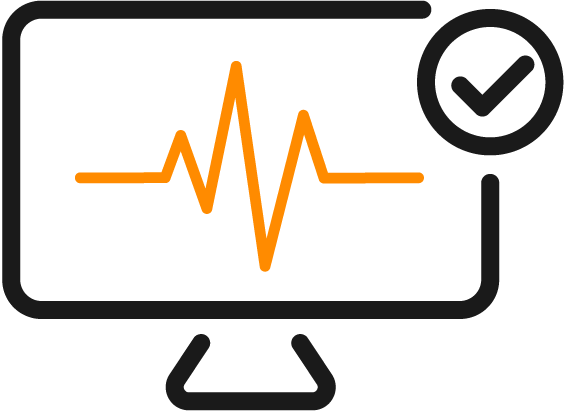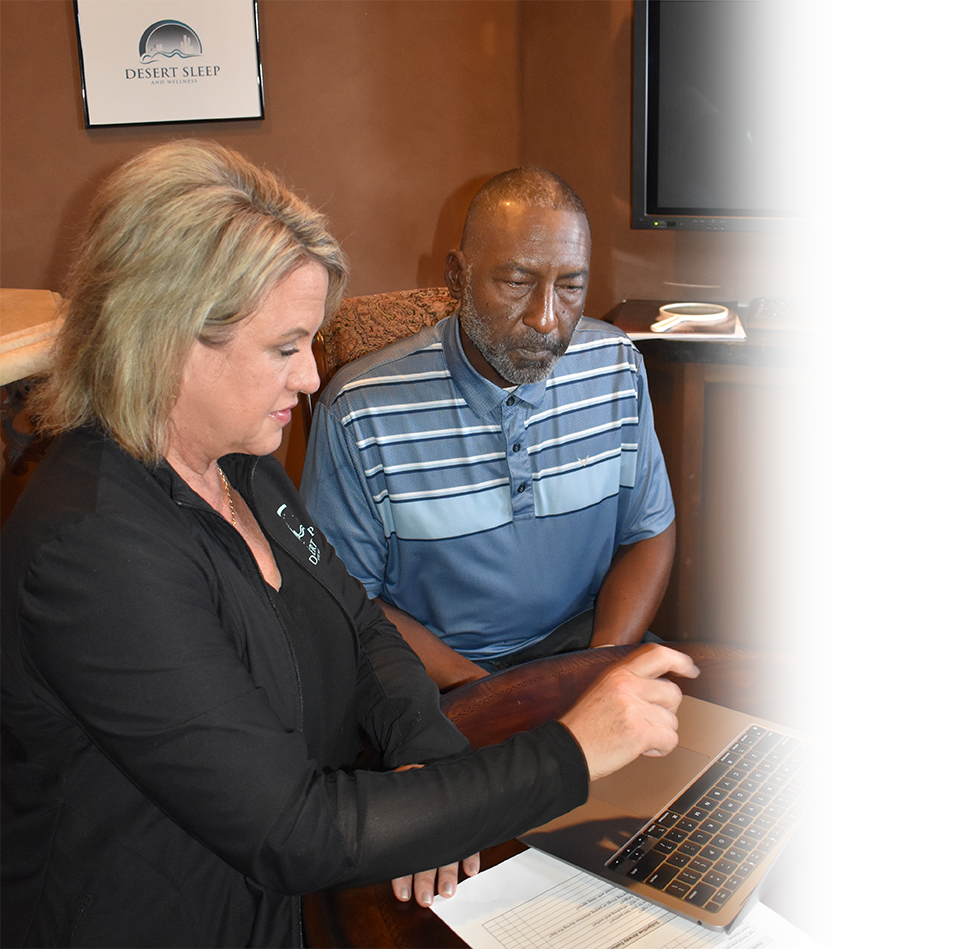Signs & Symptoms
Understanding Sleep Apnea and Its Impact on Sleep Quality

sleep apnea
Sleep apnea is a serious sleep disorder that causes breathing interruptions during sleep, leading to snoring, fatigue, and health risks. At Desert Sleep & Wellness, we offer advanced diagnosis and personalized treatment to help you achieve restful, healthy sleep.
At Desert Sleep and Wellness in Tempe, AZ, we believe that quality sleep is essential for a healthy and fulfilling life. If you or a loved one are struggling with sleep disturbances, it’s crucial to understand the potential underlying causes. One common sleep disorder that affects millions of people worldwide is sleep apnea. In this comprehensive guide, we’ll delve into the intricacies of sleep apnea, explore its effects on sleep quality, and shed light on the potential risks associated with this condition.
Is there a link between sleep apnea and cardiovascular health?
Absolutely. Sleep apnea and cardiovascular health are intricately connected. Sleep apnea is characterized by interruptions in breathing during sleep, which can lead to oxygen deprivation. When these episodes occur repeatedly throughout the night, they can significantly strain your cardiovascular system. Here’s how:
- Hypertension (High Blood Pressure): Sleep apnea is a common contributor to high blood pressure. The repeated drops in oxygen levels during apnea events trigger the release of stress hormones, causing your blood pressure to rise.
- Heart Disease: Untreated sleep apnea is a risk factor for various heart conditions, including arrhythmias, coronary artery disease, and heart attacks. The strain on the heart caused by the oxygen fluctuations can lead to serious cardiac issues.
- Stroke: Individuals with sleep apnea are at a higher risk of stroke. The oxygen deprivation and increased blood pressure associated with sleep apnea can damage blood vessels in the brain, increasing the likelihood of a stroke.
- Heart Failure: Chronic sleep apnea can lead to heart failure over time. The extra workload on the heart and the lack of restful sleep can weaken the heart muscle.
Read More
Addressing sleep apnea can be a critical step in improving your overall cardiovascular health. At Desert Sleep and Wellness, Dr. Trent Smallwood and our team specialize in diagnosing and treating sleep apnea to help you mitigate these risks.
What are the common symptoms of sleep apnea?
Recognizing the signs of sleep apnea is essential for early diagnosis and treatment. Common symptoms include:
- Loud Snoring: While not everyone who snores has sleep apnea, loud and persistent snoring is a frequent indicator.
- Pauses in Breathing: Witnessed pauses in breathing during sleep, often followed by gasping or choking.
- Excessive Daytime Fatigue: Feeling excessively tired during the day, even after a full night’s sleep.
- Morning Headaches: Waking up with a headache is a common symptom.
- Difficulty Concentrating: Poor memory, mood swings, and difficulty concentrating are often reported by individuals with sleep apnea.
If you or a loved one experience these symptoms, it’s essential to seek evaluation and treatment to improve sleep quality and overall well-being.
Are there different types of sleep apnea, and if so, what are they?
Yes, there are three main types of sleep apnea:
- Obstructive Sleep Apnea (OSA): This is the most common type and occurs when the throat muscles relax excessively, leading to airway obstruction during sleep.
- Central Sleep Apnea (CSA): CSA is less common and occurs when the brain doesn’t send the proper signals to the muscles that control breathing.
- Complex or Mixed Sleep Apnea: Some individuals may have a combination of both OSA and CSA, known as complex or mixed sleep apnea.
Each type requires a tailored approach to diagnosis and treatment, which Dr. Trent Smallwood and our team at Desert Sleep and Wellness can provide.
How is sleep apnea diagnosed by healthcare professionals?
Diagnosing sleep apnea involves a comprehensive evaluation, which may include:
- Sleep Study (Polysomnography): This test monitors various body functions during sleep, including brain activity, eye movement, heart rate, and more, to detect sleep disturbances.
- Home Sleep Apnea Test (HSAT): In some cases, a portable device can be used for convenient at-home monitoring.
Once diagnosed, we can develop a personalized treatment plan to address your specific type and severity of sleep apnea.
Can children develop sleep apnea, and what are the signs to look for in kids?
Yes, children can develop sleep apnea. The signs may include:
- Loud snoring
- Frequent restless sleep or tossing and turning
- Bedwetting
- Excessive daytime sleepiness
- Difficulty concentrating or behavioral issues
If your child displays these symptoms, it’s crucial to consult with a healthcare professional for evaluation and appropriate care.
What is positional therapy, and how can it help manage sleep apnea?
Positional therapy involves changing your sleeping position to reduce or eliminate sleep apnea events. Some individuals experience sleep apnea primarily when sleeping on their backs. In such cases, positional therapy techniques, such as using special pillows or devices, can help encourage side-sleeping and reduce apnea episodes.
What are some potential complications or health risks associated with untreated sleep apnea?
Untreated sleep apnea can lead to various health complications, including:
- Chronic fatigue
- Cardiovascular problems
- Type 2 diabetes
- Weight gain
- Liver problems
- Mood disorders
- Decreased quality of life
If left unaddressed, sleep apnea can significantly impact your overall health and well-being.

Our Core Values And Principle
At Desert Sleep and Wellness in Tempe, AZ, we are dedicated to helping you achieve better sleep quality and improved overall health. If you suspect you or a loved one may have sleep apnea, don’t hesitate to contact us at 480-447-1844. Dr. Trent Smallwood and our team are here to provide expert diagnosis and tailored treatment options to help you sleep soundly and live a healthier life.

